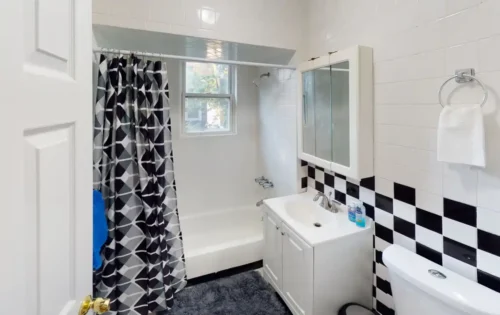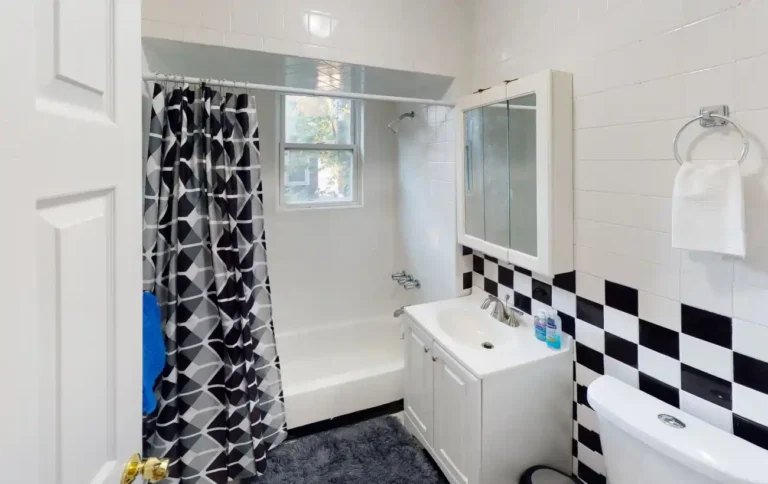Standards National Alliance for Recovery Residences

Recovery Residence is an umbrella term that includes a range of alcohol and drug free living environments, including recovery homes and sober living homes, that use peer support and other supportive services, to promote addiction recovery. The National Alliance for Recovery Residences creates national quality standards for recovery houses. DMHA is basing most of the certification requirements and on-site inspection requirements on the most current NARR quality standards. Part of the NARR quality standards for every setting is having a Code of Ethics, which should incorporate the NARR Code of Ethics. Our team of board members, recovery New Beginning Recovery Review residence operators, supporters and volunteers are committed to helping people in our communities achieve long term recovery.
- BenefitsCertified recovery residences distinguish themselves as meeting the national Standard.
- The content for these is highly visual and based on video conversations with subject matter experts.
- From day-to-day operations to the legal and ethical requirements of managing a recovery residence, CRRA candidates will understand the breadth of their responsibilities.
- Recovery residences support individuals by providing a safe living environment and readily available community of recovery-related social support.
DMHA
NARR values the cultivation of supportive, recovery-oriented environments where individuals can share experiences and offer mutual support, fostering a sense of belonging and collective strength. If you feel a residence is not meeting the quality standards required by its certification with the Indiana Division of Mental Health and Addiction, it is your right to voice that concern. With a wealth of experience in recovery circles and the support of the National Alliance for Recovery Residences, the Alabama Alliance for Recovery Residences is well equipped to promote a healthy recovery lifestyle in communities throughout our home state of Alabama. 1,000 documented hours providing related recovery residence administrator, manager, or closely aligned recovery residence services. Ethical OperationsUpholding the highest ethical standards in operations, resident care, and community interactions, ensuring transparency, integrity, and respect in all endeavors. Join us in our mission to elevate the standard of recovery living, making a lasting difference in thousands of lives each year.
Five Inspiring Community Leaders, One Common Goal

The NARR model lays the groundwork for recovery housing policies, practices, and services, offering those in recovery the chance for a sustainable and fulfilling life. The mission of NARR is to support persons in recovery from addiction by improving their access to quality recovery residences through standards, support services, government and private sector collaboration, education, research, and advocacy. Recovery residences are important assets within a community and among recovery-oriented systems of services.
We are a NAADAC & FCB Approved Education Provider

For people seeking recovery, housing solutions that provide time and support for sustainable, long-term recovery are essential. In fact, SAMHSA has identified safe and stable housing as one of the four main dimensions to recovery. Recovery Residences are a viable and cost-effective alternative to established recovery-oriented systems of care. Certified Recovery Residences provide stable, structured, safe, and healthy environments that support residents as they develop new skills to live a sustainable life.
- NARR commits to upholding high operational standards for recovery residences, ensuring safe, healthy, and effective living environments that facilitate personal growth and recovery.
- Throughout the 1990s, many treatment programs discontinued their social model elements, a distinct departure from today’s residential community approach.
- DMHA is basing most of the designation requirements and on-site inspection requirements on the most current NARR quality standards.
- Senior residents, appointed by the owner/operator to serve as the head of household, are typically called the House Manager.
Faith-Based Recovery Support
Together, we harness our collective strengths to build a more inclusive, supportive, and empowering recovery landscape. Recovery residences provide a structured, supportive environment for individuals recovering from addiction, promoting the acquisition and practice of vital recovery skills. With varying levels of support, from peer-driven to medically supervised settings, these residences are pivotal in nurturing the journey to sobriety and wellness. Reviewers will be examining the recovery environment and ensuring the property and program meet the national quality standards.
- In fact, SAMHSA has identified safe and stable housing as one of the four main dimensions to recovery.
- Each Affiliate goes through a rigorous review process before being chartered as a designated state Affiliate.
- With decades of collective experience in shaping policies, enhancing community support, and pioneering innovative recovery solutions, they embody a shared vision of empowerment and transformative care.
- We are proud to have developed a 100 hour curriculum to satisfy the educational requirements for this certification.
Key Requirements for Affiliation with NARR:
Level III / Type S (Supervised) delivers weekly, structured programming including peer-based and other recovery support services (e.g. recovery and resiliency groups or person-driven recovery plans) and life skills development programming (e.g., job readiness or budgeting). Staff are supervised, trained, or credentialed and are often graduates of a recovery residence. Level III’s are designed to support populations who need more intense support in developing recovery capital than provided by Level I or Level II. Level III’s are required to be licensed in a few states, reflecting the therapeutic nature of the services provided. NARR commits to upholding high operational standards for recovery residences, ensuring safe, healthy, and effective living environments that facilitate personal growth and recovery. At NARR, we take pride in fostering a network of affiliates and providers that exemplify the highest standards of recovery care.
Recovery Residences
We deliver training and educational content in various formats depending on audience needs and budgets. If you feel a residence is not meeting the quality standards required by its designation with the Indiana Division of Mental Health and Addiction, it is your right to voice that concern. Until recently most of our training has been in live, in-person or remote workshop formats. We tailor the content for this training to an individual client’s needs and budget, whether it be a NARR affiliate, state agency or other organizations. Please carefully review all of the credential documents before applying for certification.

We have expanded our capabilities and offerings to include cloud-based, modular courses that individuals may complete on their own schedules. The content for these is highly visual and based on video conversations with subject matter experts. Our first offering, a 20-module workshop on meeting NARR’s best practice standards, has been well received and is available either through our state affiliate organizations or directly from us. For a few states we have also developed customized modules tailored to state-specific requirements. To perform the virtual/on-site interview/inspection the recovery residence setting needs to have been in operation with residents for at least 30 days and have at least 40% occupancy. All persons working in NARR affiliate organizations, (recovery residence owners, operators, staff, and volunteers) are expected to adhere to a common NARR Code of Ethics.
Let Our Experience Build You Up
- With varying levels of support, from peer-driven to medically supervised settings, these residences are pivotal in nurturing the journey to sobriety and wellness.
- In addition, local, state, and federal departments are more willing to endorse and potentially fund or subsidize the services of certified recovery residences.
- An example of a Level IV is a recovery residence that implements social model care in a therapeutic community.
- NARR values the cultivation of supportive, recovery-oriented environments where individuals can share experiences and offer mutual support, fostering a sense of belonging and collective strength.
- NARR prioritizes educating providers, residents, and the broader community about the recovery process, the role of recovery residences, and the importance of standards to enhance support for recovery journeys.
The degree of monitoring and regulation in recovery residences varies widely from setting to setting. Given that recovery residences do not provide treatment, state regulations applicable to addiction treatment do not apply to them. That said, there are some umbrella organizations (see below) that promote quality assurance and oversight at recovery residences; they may even offer formal certification for residences that meet and adhere to these guidelines. Individuals considering recovery residences for themselves or their loved ones are strongly encouraged to inquire about any regulatory organizations with which a potential residence is affiliated and whether or not it is certified in states where certification is available.
Instead, recovery housing certification and recertification is done by NARR’s state Affiliates. Each Affiliate goes through a rigorous review process before being chartered as a designated state Affiliate. The Academy for Addiction Professionals is a leading addiction professional training center and an approved education provider for both the Florida Certification Board (FCB) and NAADAC. Recovery residences support individuals by providing a safe living environment and readily available community of recovery-related social support. NARR emphasizes ethical practices in the management and operation of recovery residences, advocating for integrity, fairness, and respect for all residents.
